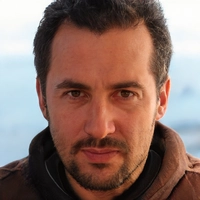Wigwe University has recently made headlines by establishing itself as Nigeria's most expensive university, with a staggering tuition fee of N12 million. This fee significantly overshadows those of its closest competitors in the private university sector. The institution, which plans to open its doors in September, is named after Herbert Wigwe, a prominent figure in Nigeria's banking sector as the Managing Director and CEO of Access Bank. Wigwe University is not just founded on the basis of educational excellence but also aims to set a new standard in the quality of education provided in Nigeria.
The Vision Behind Wigwe University
Herbert Wigwe's vision for the university is to create an educational hub that mirrors the standards of eminent global institutions. The goal is to provide an unparalleled educational environment with state-of-the-art facilities, which include modern classrooms, advanced laboratories, and residential buildings that ensure comfortable living conditions. The university's campus is designed to foster an immersive educational experience that is both intellectually and socially enriching.
The faculty at Wigwe University will consist of distinguished professors and scholars from around the world, contributing to a diverse and enriching academic atmosphere. This strategic choice of faculty is aimed at ensuring that the students receive a world-class education that equips them with the skills and knowledge necessary to excel in the global arena. The curriculum is expected to be robust, incorporating both theoretical and practical elements tailored to meet international standards.
A Comparison with Other Institutions
At N12 million, Wigwe University's tuition is approximately double that of other prominent private universities in Nigeria, such as Babcock University and Covenant University, which charge around N6.5 million and N5.5 million, respectively. These fees at Wigwe University cover not just tuition but also accommodation, feeding, and other miscellaneous expenses, offering a comprehensive package that explains part of the cost difference.
The disparity in tuition fees has sparked a variety of reactions across the country. While some potential students and parents see the fee as justifiable given the promised quality of education and facilities, others question the affordability and the value for money, expressing concerns about how accessible such an education would be to the average Nigerian family. This debate touches on larger issues of educational equity and the role of private education in Nigeria.
Facilities and Student Life
Wigwe University promises to offer not just advanced academic programs but also a vibrant student life. The campus will include cultural centers, sports facilities, and social clubs, all designed to enhance the educational experience and develop well-rounded individuals. The inclusion of comprehensive living and dining options also ensures that students can focus on their studies without the hassles of daily living.
Moreover, the university plans to build strong partnerships with industries and other educational institutions worldwide. These collaborations are aimed at providing students with internships and job opportunities post-graduation, thus preparing them for successful careers.
Looking to the Future
Despite the ongoing debates surrounding its tuition fees, the management of Wigwe University is focused on delivering an educational experience that would be worth the investment. They believe that by providing top-tier education and unique learning opportunities, they can justify the high cost. The university is poised to not only attract students from across Nigeria but also from around the globe, hoping to become an international educational landmark.
As the opening date in September approaches, all eyes will be on Wigwe University to see whether it can truly redefine quality education in Nigeria and perhaps set a new standard for private universities globally. Only time will tell if the high costs will translate into an equivalently high value in educational returns.

